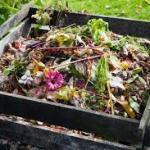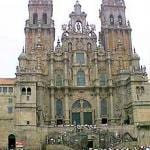In his 2014 book The Bible Tells Me So . . .” and The Sin of Certainty published in 2016, Pete Enns argues that interpreting the Bible should start with completely scrapping the idea that the Bible is a divinely inspired rule book for how to live a life pleasing to God, a rule book that rises above the fray of time, culture, and context.
I was raised to believe that the Bible is inerrant, infallible, non-contradictory, and literally true—Enns was raised within that same interpretive framework. Yet, as he argues with solid scholarship and frequent humor, that is not at all the book that we actually encounter when we read the Bible with fresh eyes. Despite the tendency of many Christians to treat their sacred text as an authoritative rule-book for a God-pleasing life, a text that is both perfect and unchanging as the product of divine dictation to human scribes, in fact—as William James once wrote— “The trail of the human serpent is over everything” in the Bible.
And this should not surprise us. The central, defining belief of Christians is that God became a human being, embedded in time, space, context, and culture as all human beings are. Why would we not expect that God’s communication to us through scripture would also be “incarnational,” embedded in various times and places? As Enns writes,
No one just “follows” the Bible. We interpret it as people with a past and present . . . None of us rises above our place in the human drama and grasps God with pure clarity, without our own baggage coming along for the ride . . . God freely and lovingly entered the human drama uniquely in one member of the human race.
Elsewhere Enns writes that
That is how Christians believe God showed up—in-fleshed in humility, in culture, in the human story, a peasant who fit right into the day-to-day world of the first century and then suffered the humiliation of execution. No entourage, no special treatment, no red carpet, no clout among the power brokers. If Christians are right and this is the ultimate way God showed up, we shouldn’t expect anything else from the Bible . . . The Bible looks the way it does because like Jesus, when God shows up, it’s in the thick of things.
As you might expect, Enns is a rock-star for some Christians and a heretic for others.
If reading theology, even that which is well-written and intended for the intelligent lay person, is not your thing, then I strongly recommend checking out the podcast “The Bible for Normal People” that Peter Enns does with fellow theologian Jared Byas (who was Peter Enns’ student in seminary). In a recent episode titled “How to Read the Bible Now that We’ve Ruined It,”  Enns and Byas discuss various metaphors that might be helpful concerning how one might think of and approach reading the Bible once one is convinced that it is neither inerrant nor intended as an infallible and timeless guide for life. The most provocative metaphor was that we might want to image the Bible as a compost pile.
Enns and Byas discuss various metaphors that might be helpful concerning how one might think of and approach reading the Bible once one is convinced that it is neither inerrant nor intended as an infallible and timeless guide for life. The most provocative metaphor was that we might want to image the Bible as a compost pile.
I am not a composter, but I know enough about compost to know that this metaphor is guaranteed to be offensive to many Christians. “The Bible is garbage??? Get the F out of here!” is likely to be the response from many. But think about it. As is the case with a compost pile, the Bible is not intended to be the primary focus of a person of Christian faith’s attention. Rather, the Bible is what nurtures and supports growth of all sorts of things. To put it in the terms of logic, just as a compost pile is a necessary but not a sufficient condition for growth in the garden, so the Bible is a necessary but not a sufficient condition for a healthy and growing faith. Each is necessary for the growth related to it, but neither is enough on its own to sustain that growth.
Just as lots of things get thrown together in a compost pile, the Bible contains material that often seems randomly related at best. The Bible is not a “book” so much as a library of dozens of books written over a number of centuries within a vast array of contexts and cultures. Just try finding a common thread between Ruth and Revelation, for instance, or between Song of Solomon and James. Many Christians insist on finding a seamless message threading its way throughout the library of books—such efforts only are successful if one ignores some passages, raises others to prime importance, and forces a Procrustean straitjacket on whatever doesn’t seem to fit.
At the inaugural Evolving Faith conference in 2018, Jeff Chu—the founder of Evolving Faith along with the late Rachel Held Evans and Sarah Bessey—gave a talk called “The Theology of the Compost,” which can also be heard on the Evolving Faith podcast
https://evolvingfaith.com/podcast/season-1/episode-3
In his first year at Princeton Theological Seminar, Chu was assigned to work at the Farminary, “which is 21 acres where we dig in the dirt and introverts don’t have to talk and it still counts as class.” And his favorite part of the Farminary is the compost pile. He says that
I didn’t know much about compost before. But now I know that it preaches a hundred Sundays of sermons about death becoming new life, about God’s abundance, about how these things that seem useless—moldy fruit, onion skins, eggshells, coffee grounds—these become rich soil . . . And the more time I spend at the compost pile, the more I ask, Isn’t the story of compost really just the story of God? Turning fear to courage, sorrow to joy, death to life.
What might a theology of compost teach us about God and about ourselves? According to Chu, many things including the following:
- A robust theology of the compost reminds us that death and the things of death, our sin, our suffering, the ways we hurt each other, the ways we harm ourselves— These things are never the end of God’s story.
- A robust theology of the compost reminds us that we are still in the process of becoming, and God has written redemption into the story of creation itself.
- A robust theology of the compost reminds us that God has empowered us to turn what is ugly and festering and dying into what is lovely and beautiful and life-giving.
- A robust theology of the compost testifies to the fact that we can’t do this alone, but we need others, because a single worm can’t do very much but in community they have such tremendous power.
- A robust theology of the compost testifies that those who have been told by society that we are worthless can act in the confidence of the knowledge that they are worthy.
- And a robust theology of the compost testifies that God urges those of us who have been shamed not to shame, but instead to love. Because in our acts of love, we participate in preparing the soil in which God’s reign of love and justice can take root.
Chu is from a Reformed Presbyterian tradition and notes that John Calvin, who is the hero of the Reformed tradition, frequently referred to human beings as “but rottenness and a worm”; I’m reminded of a line from a hymn in my Baptist tradition that asked “Would He devote that sacred head for such a worm as I?”
But Calvin and the hymn writer (and Paul in his letters) were wrong about worms. As Chu notes, “Worms can be magic. Worms can be engines of redemption. Worms devour things of death and poop out life. And God gave their poop that power.” There is nothing that is too lowly or humble that God cannot use it. That includes you and me. And compost piles.













